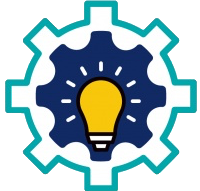Couplings and Shaft Alignment
Details :
This Couplings & Shaft Alignment training course
will provide an overview of coupling designs and applications for transferring
the torque and rotation from the driver shaft to the rotating machine: pump,
compressor or turbine. The training course will indicate the importance of good
installation, maintenance and failure analysis of couplings. The topics are
specially designed for engineers and technicians that have had limited exposure
to couplings and need to upgrade their technical knowledge about coupling
characteristics and various operating loads. The focus in the course will be on
problem detection, root cause analysis and failure prevention.
Shaft alignment is a technical skill that is categorized as
a specialty. It requires measurement instruments and relies on technician’s
skill and experience if good results are to be expected on pumps, compressors
or turbines.
This training course will provide an integral training
knowledge and experience of shaft alignment to solve misalignment problems in
rotating machinery. Emphasis will be on the ways to analyze, identify and
correct the root causes of misalignment, unbalancing and vibration in order to
achieve smooth operation, and improved machine performance.
This training course will include discussions of various
real practical problems and case studies from the existing engineering
practice, which will be solved in the form of several workshops.
This training course will highlight:
- Importance
of proper selection of couplings
- Guidelines
for coupling installation: mounting and dismounting
- Common
coupling problems and potential failures
- Effects
of shaft alignment
- Best
methods and techniques for measurement of shaft alignment
- Effects
of misalignment on pump and compressor operation
At the end of this training course, you will learn:
- Guidelines
for good coupling installation
- Solving
common coupling problems and failure prevention
- Vibration
monitoring related to coupling health and machinery performance
- Methods
and practices for efficient alignment of rotating machine
- Use of classical reverse dial methodology and modern laser optic technique
- Professionals
dealing with the operation and maintenance of rotating equipment
- New
technicians who wish to improve knowledge and skills
- Those
who are involved in condition monitoring and vibration analysis
- Maintenance
technicians who are in charge of correcting the machinery problems.
- Engineers
and maintenance planners involved in machine’s condition monitoring
Day One: Couplings - Types, Application & Operation
- Classification
& Application of Couplings
- Characteristics
of Rigid Couplings
- Characteristics
of Flexible Couplings
- Selection
of Parameters of Couplings for Pumps & Compressors and Turbines
- Advantages
& Disadvantages of Different Types
Day Two: Couplings - Installation, Maintenance &
Troubleshooting
- Installation
Best Practices & Safety Issues
- Coupling
Inspection in Operation
- Vibration
Monitoring and Analysis
- Preventive
Maintenance & Condition Monitoring
- Failure
Prevention & Troubleshooting
Day Three: Shaft Alignment Basics
- Need
for shaft alignment
- Effects
of shaft misalignment
- Types
of misalignment: offset and angularity
- Measuring
techniques
- Rim
and face alignment method: TIR determination
Day Four: Alignment Measurement Methods
- Reverse
dial methodology
- Correcting
misalignment: foundation and soft foot
- Thermal
growth determination
- Laser
optic technique
- Misalignment
detected by vibration monitoring
Day Five: Effect of Misalignment on Bearings & Seals
- Effect
of misalignment of bearings
- Vibration
monitoring results as indication of misalignment
- Effect
of misalignment on seals of pumps and compressors
- Leakage
control & prevention
- Summary
and conclusions
- All lectures are in colorful presentation
- All lectures are interspersed with interactive discussion
- All lectures include group discussion, case history and exercises
- Actual major incidents as well as industry experience are reviewed
- Participants receive a multicolor course manual
- Pictures of real incidents and case history are shown
- Videos on the subject are shown
09:00 to 15:00


